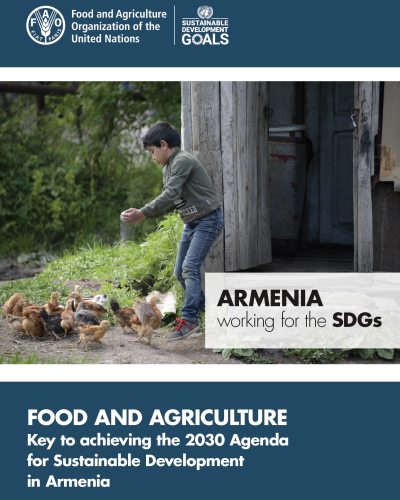Food and Agriculture: Key to achieving the 2030 Agenda for Sustainable Development in Armenia

On 25 September 2015, the 193 Member States of the United Nations adopted the 2030 Agenda for Sustainable Development, underpinned by 17 Sustainable Development Goals (SDGs) with 169 targets and 232 indicators to guide the actions of governments, international agencies, civil society organizations and other institutions to achieve sustainable development by 2030.
The 2030 Agenda sets forth a transformational and ambitious plan to guide the global approach to sustainable development through the united efforts of all countries and stakeholders, with no one left behind. The 17 SDGs are universal, integrated and indivisible, capturing all three dimensions of sustainable development: social development, sustained and inclusive economic growth, and environmental protection.
The 2030 Agenda aims to tackle the complex challenges facing the planet today – ending poverty, hunger and malnutrition and responding to climate change. In this context, sustainable food and agriculture are critically important for the achievement of the SDGs in that they tackle the root causes of hunger and poverty, enabling an inclusive society that leaves no one behind – particularly vulnerable and disadvantaged women and men in rural communities – and promoting the sustainable management of natural resources.
The SDGs offer the right framework to tackle the economic, social and environmental challenges related to food and agricultural systems in Europe and Central Asia.
Agriculture is one of the most important economic sectors of Armenia. It is the main source of economic activity in rural areas and is a signifi cant contributor to the gross domestic product. Agriculture produces 13.7 percent of the gross domestic product (GDP) (as of 2018) and employs about 24.8 percent of the working population, of whom nearly 52.1 percent are female farmers. Women are over-represented in seasonal and precarious employment, and 82.1 percent of all women working in agriculture do so informally.








